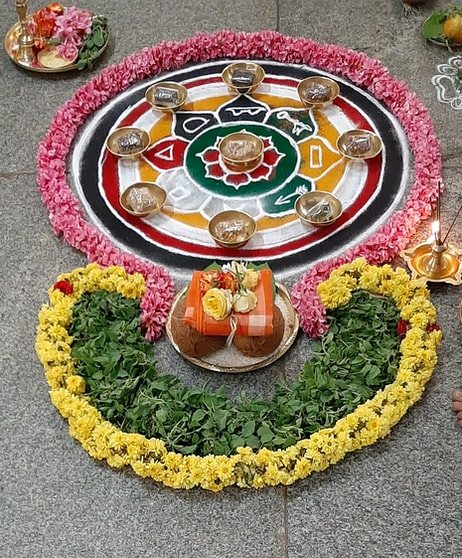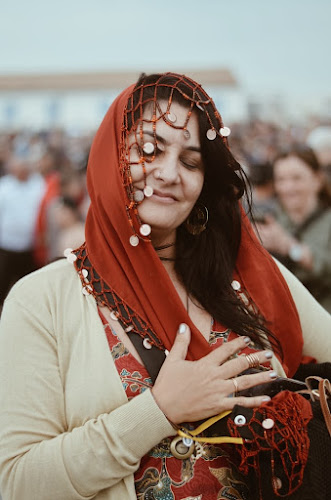Relation Between Attar, Religion & Rituals.
At the time of laying the foundation of a temple, in Babylonia, there was a process to mix perfume with building material; the idea was probably to keep the fragrance in its structure. It was the priests' duty to sprinkle perfume on the walls, floors, and images of gods. It was the ritual, three times a day, to burn cynicism in the temples.
The warmth of the spirit, the joy of the mind, and the pleasure of the senses that attar fragrances make us feel can be described as divine, soothing, and liberating from selfish trapping. It's a momentary 'nirvana' experience, or completeness, and the highest spiritual state.
India has a deep and intimate relationship with the ritual and offering of botanical scents and perfumes as well as spices, incense, aromatic oils and flower garlands. It is also believed that adding oud to the front temple is suitable for concentration. “the word ‘agarbatti’ comes from ‘agar’ or oudh. Previously, they were made from pure oud while today we have fascinating synthetic varieties on incense sticks.”
 |
| Indian Rituals |
"Rose and mogra are innately capable of uplifting the spirit." while camphor, floral and sandalwood incense purifies the atmosphere and calms the nerves allowing the mind to concentrate inward (self-discovery) oudh with its humid, fragrance increases the energy levels, reducing depression and anxiety.
Which fragrance to which deity should be offered?
- Shri krishna - chandan ( sandalwood )
- Shri ram - jai ( indian jasmine )
- Hanuman ji- chameli ( jasmine)
- Shiva, shankar - kevada ( pandanus )
- Shri durga devi- mogra ( arabian jasmine)
- Shri lakshmi devi - gulaab ( rose)
- Shri ganpati - henna ( mehandi )
- Dattatreya, dattaguru- vala (vetiver)
You can get all these fragrances from Attar Souk’s Aastha Collection.
The supreme being is addressed in the maha mrutyunjaya mantra as 'sugandhim' or
'the fragrance of life,' thus explaining that scents, after all, are the gifts
of the divine and the angels of spiritual connection. Sharon rightly says,
"it's said in the ancient talmud, 'what is it that brings pleasure to the
soul but not to the body? Fragrance!"
Offer nine flowers to the Shri Durga Devi (primal energy) energy forms. The
number '9' reflects Sri Durga Devi's actual duality role through her other
forms. It is, therefore, appropriate to offer nine flowers to her forms-the
Mahakali, Saraswati, Mahalakshmi, and goddess Lakshmi.
 |
| Navratri Festival |
As the fragrance frequencies are correlated with the aspect of the absolute
earth, they give the embodied soul the value of the Chaitanya at the physical
body level. For the following reasons stop trying to offer perfume with a heavy
odor. The frequencies emitted by perfume with a heavy odor attract only the
deity principle 'with attributes,' while frequencies emitted by a mild and
friendly perfume attract in a very short time the attributeless principle of
the deities in the universe and allow the embodied soul to maintain the
Chaitanya gain for a longer duration.
Our deeply rooted relationship with nature is renowned, and since fragrances
are produced from or imitated by natural substances such as flowers, trees,
spices, and water, they have a profound effect on our psyche. Incense has
helped the rishis of old meditate right from the Vedic age, and natural
perfumes also play a vital role in spiritual rituals.
Worshippers in ancient India used perfumes in religious ceremonies, and
sandalwood was burned in temples for fragrance. China learned from the Buddhist
priests who came from India to use fragrance in the 3rd and 5th centuries.
Hindus also had the custom of decorating their gods and deities with
flowers.
For Muslims, perfumes from the attar, musk, and other fragrances
are a way to connect with Allah. In Islam, perfumes and oils form an important
part of religious symbolism. ... Muslims think that during Friday prayers and
also during the pilgrimage to mecca the prophet used musk perfume. Muslims use
a number of scented oils and perfumes not only during prayer but also to
preserve their personal hygiene for ritual washing. From many religious books,
it is also clear that Islam persuades women and men to wear perfumes to appear
attractive to their spouses. Muslims also believe that if somebody offers
perfume they shouldn't deny it.
Sweet scent perfumes are generally offered in small, compact bottles to make
carrying simple for people. The practice and traditions established centuries
ago are continued by muslims all over the world by wearing new clothing and
perfume. The ritual is commonly followed during the eid al-fitr, which
celebrates the close of the ramadan season, and the eid al-adha, which
celebrates the haj pilgrimage's conclusion. The perfume for men, according to
islam, is the one whose fragrance must be obvious but the color of the
fragrance must be hidden. For women, the perfume's color must be obvious but
the fragrance must not be.
There was no concept of burning incense or decorating flowers in mosques in
Muslim society but later places of worship adopted the tradition of using
perfume and flowers. Some holy places are washed with rose water, and a shawl
of flowers cover their graves. The flowers and various kinds of perfumes are
used in religious ceremonies such as Milad or Quran khawani. At zikr or qawwali
meetings, incense is burnt which triggers the audience's feelings of spiritual
ecstasy.
Therefore, Attarsouk has its own story with the past two centuries (200 years!)
Of offering the best attar to people all over the world. Through the port of
Mumbai, also known as Musafir khana, people employed in the port sells attar
products to tourist and visitors, we stand out as an offering attar fragrance
in a wide variety to fulfill one's enjoyable fragrance needs. Explore within a
wide range of Attarsouk's collection.
Conclusion
- Attar fragrances are the ancient gems in the fragrance
class.
- Uplift one's mood & senses.
- An essential aspect used to practice spirituality.
- Used in many rituals by various religions.
sayonara !








No comments: